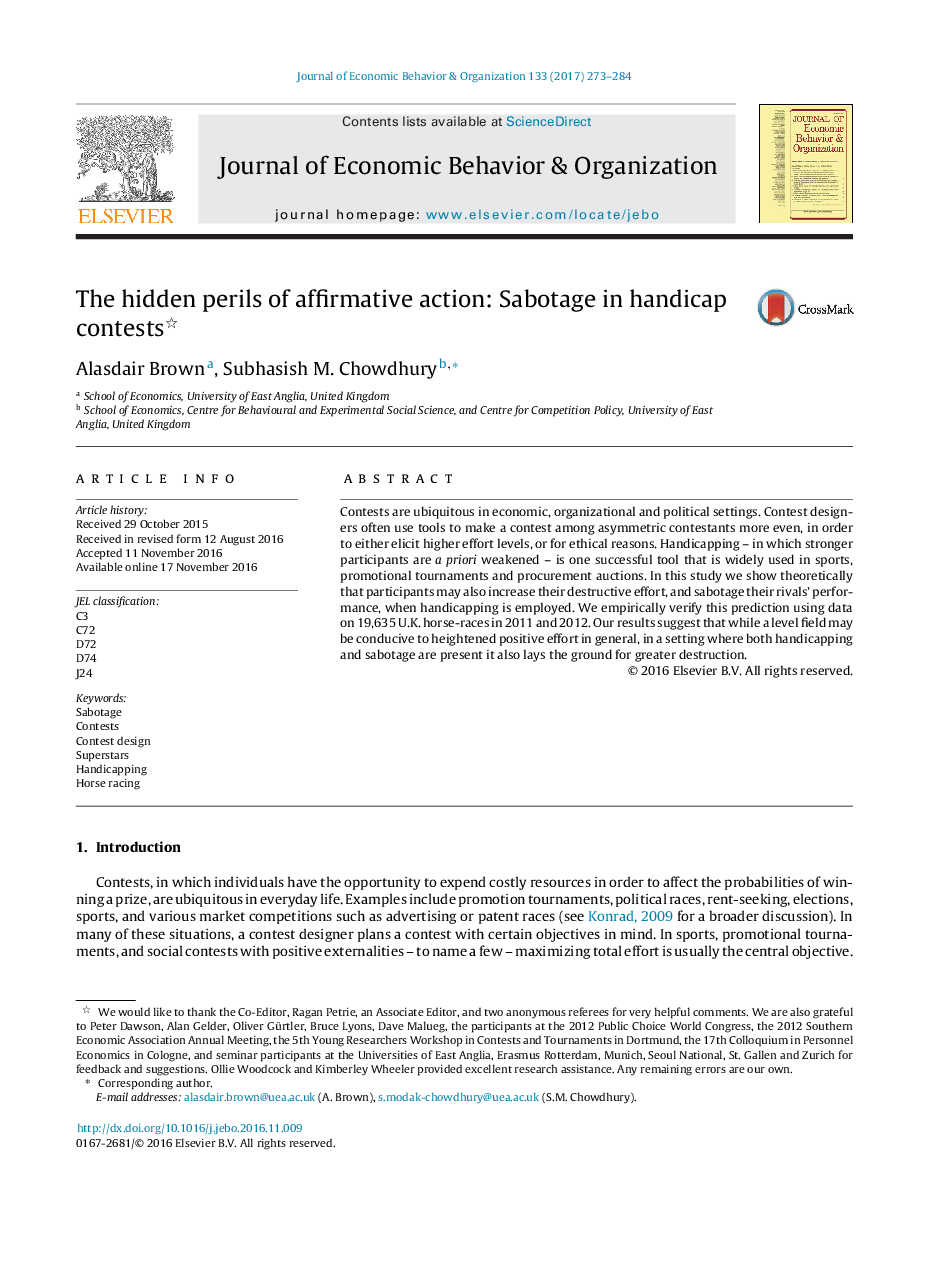| Article ID | Journal | Published Year | Pages | File Type |
|---|---|---|---|---|
| 5034612 | Journal of Economic Behavior & Organization | 2017 | 12 Pages |
â¢We study standard contests, and contests with affirmative action (AA).â¢Prior research has found that effort levels are higher in contests with AA.â¢We find that sabotage, destructive effort, is also higher in contests with AA.â¢We verify this prediction using a unique data-set from UK horse racing.
Contests are ubiquitous in economic, organizational and political settings. Contest designers often use tools to make a contest among asymmetric contestants more even, in order to either elicit higher effort levels, or for ethical reasons. Handicapping - in which stronger participants are a priori weakened - is one successful tool that is widely used in sports, promotional tournaments and procurement auctions. In this study we show theoretically that participants may also increase their destructive effort, and sabotage their rivals' performance, when handicapping is employed. We empirically verify this prediction using data on 19,635 U.K. horse-races in 2011 and 2012. Our results suggest that while a level field may be conducive to heightened positive effort in general, in a setting where both handicapping and sabotage are present it also lays the ground for greater destruction.
